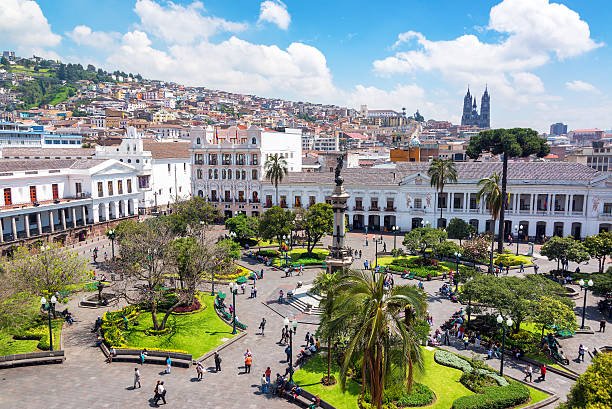Anniversary of the Founding of Quito- December 6th

Celebrating the Anniversary of the Founding of Quito: A Day of History and Culture
On December 6th, the people of Ecuador’s capital city come together to celebrate a momentous occasion: the Anniversary of the Founding of Quito. This vibrant holiday honors the establishment of Quito in 1534 by Spanish conquistador Sebastián de Belalcázar, marking a significant chapter in the city’s rich history.
But the story of Quito goes much deeper than its Spanish foundation. Nestled high in the Andes at an elevation of 2,850 meters, Quito was once a thriving hub of the Inca Empire and an important indigenous settlement before European colonization. Over centuries, it evolved into a city of profound historical, cultural, and political significance, earning the nickname “The Light of America” for its early involvement in the Latin American independence movement.
A City Steeped in History
Quito is not only one of the oldest cities in South America but also one of the most beautiful. It boasts a UNESCO World Heritage Site designation, given for its remarkably preserved historic center filled with colonial-era architecture, cobblestone streets, and iconic landmarks like the Basilica del Voto Nacional and Plaza de la Independencia.
The city’s founding in 1534 marked the beginning of a new era, blending indigenous, Spanish, and mestizo cultures into a unique identity that continues to thrive today.
How the Anniversary is Celebrated
The Fiestas de Quito, as the celebrations are known, last for several days leading up to December 6th, filling the city with joy and color. Here’s what to expect if you’re lucky enough to be in Quito during this festive time:
- Parades and Street Festivals
The streets of Quito come alive with parades featuring traditional costumes, floats, and dancers. Music is a central element, with live performances of Ecuadorian folk songs and modern tunes energizing the crowds. - Cultural Events
Museums and cultural institutions host exhibitions showcasing the history of Quito, from its pre-Columbian roots to its colonial past and independence-era struggles. - Bullfighting (Traditionally)
While controversial, bullfighting events have historically been part of the celebrations, reflecting Spanish influence. However, these are increasingly being replaced with other cultural activities. - Chivas Rides
Hop on a colorful chiva, an open-air party bus, and tour the city while enjoying live music, drinks, and breathtaking views of the Andean landscape. - Fireworks Displays
The nights light up with spectacular fireworks, illuminating the city’s skyline and adding magic to the celebrations.
What Quito Represents Today
The Anniversary of the Founding of Quito isn’t just about history—it’s a time for reflection on the city’s cultural and social identity. Modern Quito is a dynamic blend of its historical roots and contemporary progress. Its people, proud of their heritage, use this holiday to strengthen community bonds and celebrate the unique spirit that defines the city.
How to Join the Festivities
Whether you’re a resident or a visitor, there are plenty of ways to immerse yourself in the celebrations:
- Explore the Historic Center: Take guided tours of Quito’s colonial sites and learn about its storied past.
- Attend a Festival Event: Check local schedules for concerts, food fairs, and art exhibitions.
- Sample Traditional Foods: Enjoy dishes like locro de papa (potato soup), empanadas de viento, and helado de paila, a traditional fruit ice cream.
Why This Holiday Matters
The Anniversary of the Founding of Quito is more than just a commemoration of a date—it’s a celebration of resilience, unity, and pride in a city that has withstood the test of time. It’s a time to honor the diverse cultural influences that shape Quito and to look forward to its future as a beacon of history and modernity in South America.
If you find yourself in Quito during early December, join in the Fiestas de Quito and experience firsthand the warmth, joy, and cultural richness that make this city so extraordinary. ¡Que viva Quito!
